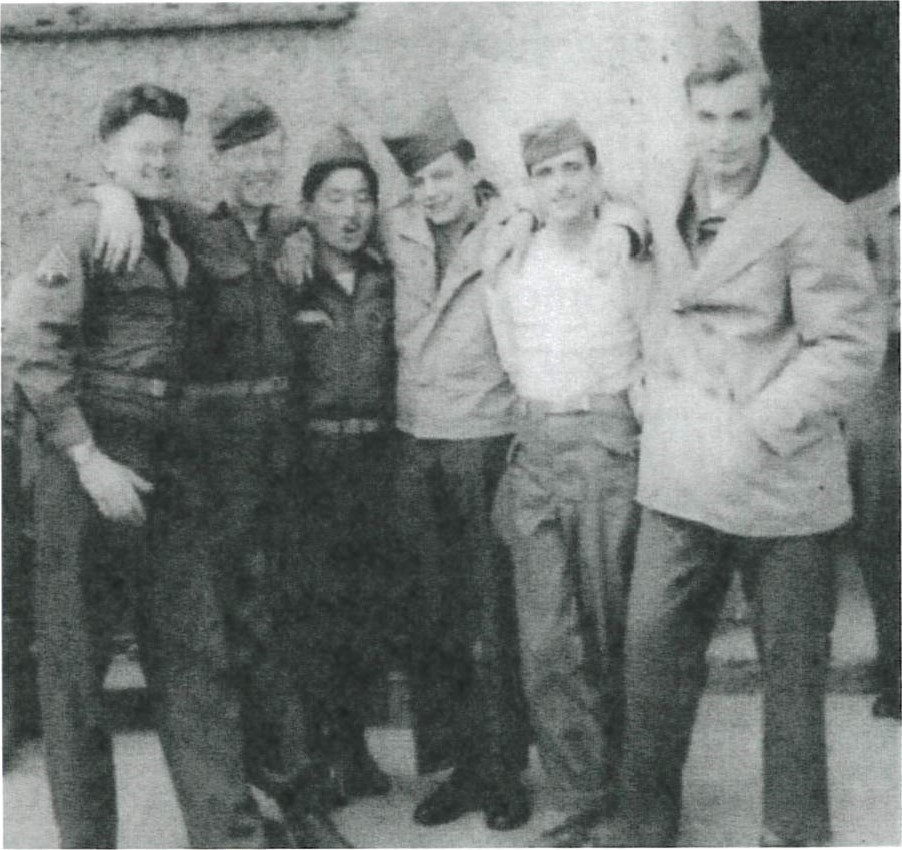Honoring Our Veterans
All month long we're going to be showcasing stories from Brightview Senior Living veteran residents. Their stories of heroism, war-time life, and unique historical perspective showcase how full and vibrant each of their life stories are. John Murphy recounts his time in the U.S. Army during WWII in Europe.
A Combat Engineer Becomes a Medic
By John Murphy
I graduated from high school in 1944, and immediately went into the Army Specialized Training Program in which, in exchange for committing to stay in the Army until the end of the war, I would be sent to an engineering school to prepare for a military career as a combat engineer. My first assignment was at Johns Hopkins University, where I stayed for two semesters before being transferred to Virginia Polytechnic Institute for two more semesters.
In July 1945, it was off to Camp Robinson, Arkansas for infantry basic training preparatory to participating in the upcoming invasion of Japan (which was anticipated to be a very difficult operation because the Japanese army could be expected to defend their home territory until the bitter end). Fortunately for me, atomic bombs were dropped on Hiroshima and Nagasaki, and the Japanese surrendered before my basic training cycle was completed.
Thus, my destination changed from Japan to Germany where large numbers of replacements were needed so that combat veterans could be returned stateside. One of my most enduring memories of Camp Robinson was being on guard duty the night of VJ Day. I walked Post Number One, immediately around the guardhouse/stockade, and watched truckload after truckload of inebriated GIs being hauled in by the MPs to be confined until they sobered up.
After the conclusion of my 17-week basic training cycle and a long and tedious journey by rail, bus and ship (the venerable old George Washington, a former German ocean liner which had been interned during the first World War and many years later converted into a troop transport), I arrived in Le Havre, France in January 1945. From Le Havre, it was a troop train, with six of us confined for three days and two nights in a compartment designed for two occupants in civilian life, to a replacement depot in Bavaria. We were close to the Austrian border, where General Patton's Third Army had settled down to occupational duties after the German surrender. Patton himself had died a short time before from an automobile accident near the Czechoslovakian border.
A few days after my arrival at the depot, I was accosted by a grizzled old master sergeant who asked me if I would be willing to be "pulled off shipment", as it was called, and assigned to the medical detachment at the depot. Since that sounded better than continuing on to the Austrian border with my rifle in my hand, I of course said "Yes". But I couldn't help asking him how it had been decided that I was qualified to be a medic. After riffling through the papers on his clipboard, he asked "You went to Johns Hopkins, didn't you"? When I responded "Yes, but I was studying engineering, not medicine", his reply was a gruff "Hell, that don't make no difference", and thus began my subsequent military career as a technician in the Medical Corps.
I have many memories of life at the former German Army Caserme where we were located. One of the most pleasant is that of my first NCO, Staff Sergeant Himeo "Chuck" Tsumori who, despite his parents being moved to an internment camp in California, had enlisted in the 442nd Regimental Combat Team, a Nisei unit which came to be the most-decorated outfit in the Army, with 9,486 Purple Hearts, 8 Presidential Unit Citations, and 21 Medals of Honor. Its motto was "Go for Broke." Chuck was assigned to the medical detachment for a short time on his way home after having fought a tough war, and, in the short time that we worked together, we became good friends. I often wonder how things developed for him in later years.
Our medical detachment at that time consisted of a medical officer, two medical technicians, a dental officer, a dental technician, a senior NCO (Chuck), and an ambulance driver. Our responsibilities included holding a sick call every morning for those who felt they needed medical attention, administering physical examinations to all troop shipments passing through the depot (both arriving in and departing from the European Theater of Operations), and transporting persons who were in a severe medical situation to the Third Army 98th General Hospital in Munich. The bodies of those who had died or were killed in our assigned area of operations were transported to the morgue at the 98th. When our ambulance driver was rotated stateside without being replaced that function fell to me in addition to my medical technician duties.
After a few months, I had accumulated enough points to entitle me to travel to Berchtesgaden to the Third Army Rest and Recuperation Center located there. That gave me a chance to do a little sightseeing and enjoy some boating on Lake Konigssee. The boathouses and boats there had been used by tourists in pre-war days and now could be used by military personnel.
In the summer of 1946, our unit was relocated to a huge consolidated Replacement Depot in Bremerhaven which processed all personnel coming into or leaving the European Theatre. This meant that there was a larger staff doing pretty much the same duties as we had done in Munich. In April 1947, it came time for me to rotate stateside, eventually being discharged at Fort Dix, New Jersey, after having had the opportunity to serve in three of the Army components the Corps of Engineers, the Infantry, and the Medical Corps.
In later years, my wife, whom I had known in grade school but who did not become my wife until several years after the war ended, told me some of her memories of the war years. In the little town where we grew up in south central Pennsylvania, a rigid blackout system had been instituted. Her father became an Air Raid Warden and every night he put on his white helmet and patrolled the streets to make sure that all blinds were drawn and no light was visible. With some distaste, she also recollected coop full of chickens which she was expected to tend to after school, as well as to work in the "victory garden" located in the back yard. With rationing and all the other problems confronting the civilian population, it appears to me now that some of us who served in the military didn't have it so bad after all, although we didn't think so at the time.

